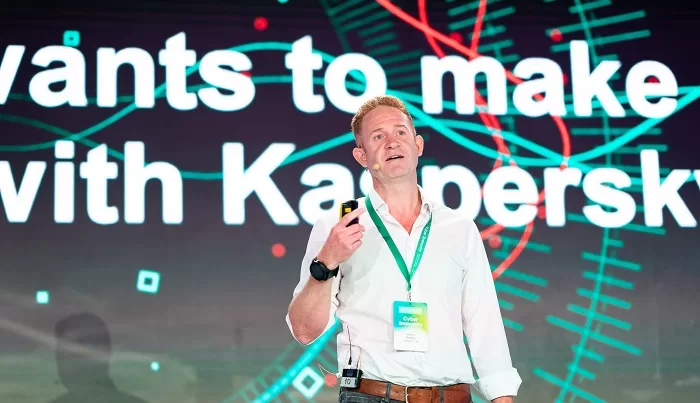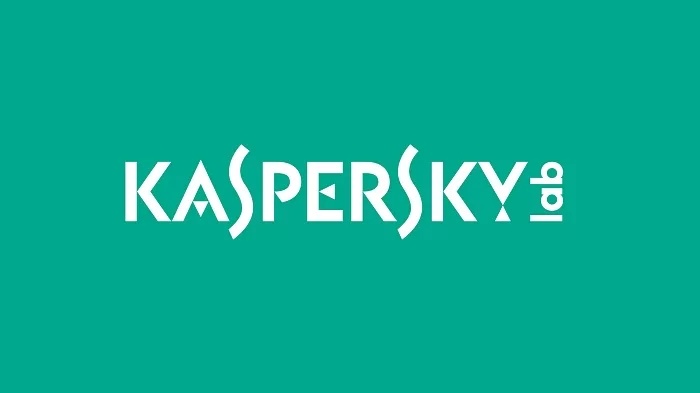Technology
Interview With Andrew Winton, VP Marketing at Kaspersky – Global Brands Magazine

“Kaspersky OS is a very exciting project and we are beginning to bring products to market – we have a number of customers who are trialing and using these products already. And that will continue to grow.”
What is it like to be a VP for Marketing at a global cybersecurity company in a pandemic?
Everybody around the world had to deal with real challenges when the pandemic struck and when governments started imposing lockdowns. We had to move online with everything we did and, for me, it’s not an experience I’d opt for on a regular basis, but we’ve learned a lot from it.
First of all, we had to change all of our plans from a business point of view. We’re a company that loves to see our customers and meet prospects face to face at events, at conferences and offices, so having all of that almost paused overnight we’ve had to change a lot very quickly. We had to move many things online – we had to learn how to do webinars and online events, which we did really successfully.
For me, it was also important to make sure that the team was able to work effectively together and collaborate continually. We had to find ways for everyone to work successfully even when we’re never together in person – how to remain creative, how to build amazing campaigns, how to keep the quality of our marketing, our messaging, and continue to grow and get better. So we learned what works and what doesn’t.
And keeping in close communication around the world has actually, in a way, become easier because nobody is travelling, and everybody is more available to be part of what you’re doing. Even if we can travel, hopefully soon, and things go back to a kind of normality, we need to take the good bits of the pandemic and make sure that they continue into the future.
And for us, as a company, customers around the world have never needed our products more than they do now – whether it’s hospitals being attacked by ransomware, or individuals working at home more than ever and being threatened by the digital ecosystem that they have to work in,we’ve been very busy trying to make sure we protect and secure our customers all over the world.And along the way, we’ve been very lucky to win some awards, including from Global Brands Magazine. And I think it’s really nice to be recognized for that kind of success.

Kaspersky is recognized as Most Innovative Cybersecurity Solutions Provider of 2020 by Global Brands Magazine
What challenges do you foresee for brands in the cybersecurity space?
One of the main challenges for brands is that today people expect more, they expect to get what they want now, or tomorrow at the latest, and at the best quality. This requires constant improvements for those working in complex areas like cybersecurity, where everything evolves very quickly.
For example, amid the pandemic, some solutions that were still at an early stage of development have become widely used. There’s been a lot of movement in our market into the cloud as businesses moved from operating in their offices to operating from home. Companies wanted that kind of boost to solutions and we had to make our technologies adapt to those kinds of changes – we’ve launched new products, new solutions, new bundles.
We constantly work with our global teams to see what’s happening and try to make sure we’re quickly reacting to changes in the market. But we’re also very clear that we won’t compromise on the quality of our technology – we want to continue to be the best technology provider in our sector.
Sometimes that takes a little bit longer to deliver the very best in your market because you want to make sure that it’s tested properly, and that it works effectively. We want to make sure that everything we put out into the market is absolutely the best it can be. We are the most tested and the most awarded in our sector and we want to make sure that this continues in the future.
How different is Kaspersky from other cybersecurity brands?
Kaspersky is a standout company for many reasons.
Firstly, because we embrace the global nature of our business in a way that most of our competitors don’t. We are proud to be a company that is committed to building a safer and better world – by securing technology we make sure that the possibilities it brings become opportunities for each and every one of us.
Our CEO – Eugene Kaspersky – is passionate and more vocal about cybersecurity than any other CEO that I can think of in our sector. He’s a renowned expert in our field, he set the company up over 20 years ago and he knows and understands this market like nobody else.
Also, we pioneer a new approach for the cybersecurity industry – it’s based on greater transparency and accountability. Through the Global Transparency Initiative that we launched in 2017, we engage the broader infosec community and stakeholders in validating and verifying the trustworthiness of our products, internal processes and business operations. Within the initiative, we moved our data processing infrastructure to Switzerland and opened a number of Transparency Centers in different parts of the world: in Zurich, Kuala Lumpur, and Sao Paulo. This year we plan to open a new Center in Canada.
We believe that collaboration is the most effective way of fighting cybercrime. We collaborate with global IT security vendors, international organizations like INTERPOL, and national and regional law enforcement agencies all over the world.
Moreover, we have launched socially important initiatives, such as No More Ransom – a non-commercial project launched together with Europol, Dutch Police and McAfee. The project helps to fight ransomware, with more than 100 supporting partners from the public and private sector. It helps victims of ransomware attacks to decrypt their data for free, and now it is available in more than 30 languages.
At the same time, we’re a commercial company, but the commercial nature of our business sits alongside the really important work we do – protecting people and making sure they are able to enjoy all those technologies that are available for them.
You were leading Kaspersky’s rebranding that occurred in 2019. Tell us about it. Why was it needed?
The rebranding was really important for the company. It was something that we talked about before I joined Kaspersky and it was a key project when I started. Eugene Kaspersky was very clear that he wanted the business to look forward and look to the future with not just a new logo, but a new vision, a new pathway. Recognizing that since the creation of the company in 1997 the world has changed, we were no longer trying to save the world – this felt like a slightly old message and probably one – given the nature of how the market has changed – that wasn’t really fair for us to keep aspiring to.

Kaspersky old wordmark logo: 1997–2019
But moving to the new logo, brand vision, brand platform, a new aspiration to build a safer world was much more appropriate for us. Losing the ‘Lab’ from our previous name ‘Kaspersky Lab’ was another part of that – getting rid of that old language and moving forward to being a global technology company that provides solutions and products that are fit for today’s realities.
Alongside the work that we did with our Global Transparency Initiative, it was a perfect combination of those two streams that had a new innovative look and feel and message to the company.A new way of opening ourselves to the world.

Kaspersky logo after rebranding
We’re proud of the work that we’ve done – we’ve created a really powerful new brand, one that has raised the quality of the company’s messaging in much more consistent ways. So you see much better marketing communications from us now across the globe. And that journey continues – we keep evolving and growing in many ways.
What does Kaspersky have in store for the future?
There is a lot to come from us – we haven’t been sitting back relaxing during the pandemic and our teams have been working very hard on building new solutions for our customers.
For example, we’ve been working on Kaspersky OS for a while and we’re passionate about bringing that out to the world. It’s linked to our ambition to create what we call Cyber Immunity – an immunity-based approach that enables the creation of IT systems where everything connected is protected, and all the systems are secure by design.
Most intelligent systems today are designed without security being considered a primary goal. We decided to change this: our specialists created a concept for designing IT systems with ‘innate’ immunity. Its concept implies that the risk of entire classes of cyberattacks will be eliminated – they can no longer affect a system’s ability to execute its functions.
Kaspersky OS is a very exciting project and we are beginning to bring products to market – we have a number of customers who are trialing and using these products already. And that will continue to grow.
Apart from that, we also have interesting solutions for a number of different markets, whether it’s Kaspersky Antidrone, which is already available in a number of markets and will soon be at hand for the European customers; all the way through to new consumer launches which we’re focusing on over the next 12 to 18 months as well.
So stay tuned for our updates.
What advice do you have for companies to equip themselves against potential cyberattacks?
The more processes a company moves online, the more it needs to pay attention to cybersecurity and IT training for employees. The latter is sometimes underestimated, but it’s important to remember that the human factor is among the main reasons behind cybersecurity incidents.
First of all, every organization should have a stated IT security policy, so every employee can gain an understanding of rules and expectations regarding everything from passwords to customer privacy, from physically securing technology to data classification.
Some must-have things include using only original software downloaded from official sources; having comprehensive security software on all connected devices, including on those used by employees for remote work; as well as enabling and reinforcing employee awareness about cybersecurity.
The list of advice is quite long for this interview and varies on the details of a company’s IT infrastructure, but people can always find more useful information on IT security viaour Kaspersky Daily blog.
Which sectors or industries would you say have become more attentive towards information security?
After the surge in cybercrime amid the pandemic and remote work, the growing importance of cybersecurity has become even more vital for many industries.
For example, healthcare has become more interested in cybersecurityasm since the start of the pandemic, hospitals have increasingly become targets for ransomware scammers. To help healthcare institutions stay protected from cyberthreats in this very challenging time we decided to support them with free full-featured product licenses for six months.
Speaking more broadly, industrial cybersecurity has been a growing trend for many years, especially in the automotive sector. As cars become fully-fledged entertainment, communications and productivity hubs with multiple systems and apps connected to the internet, the need for secure solutions embedded right within the heart of those new automotive technologies is really important. For over a decade we’ve been working with a number of carmakers and manufacturers of key connected car components, becoming a household name in automotive cybersecurity.
Also, the growing industry of smart city technologies is certainly paying attention to cybersecurity issues. To build a complex, multi-level infrastructure for a smart city, one must consider a variety of factors, mainly those relating to underlying processes and technologies. At the end of the day, the functioning of critical urban organizations must be safe and secure to improve citizens’ quality of life.
Every year brands choose to market themselves through new and innovative methods. How have these techniques evolved over the last few years?
Brands have always been looking for new areas to talk to their customers and new ways of communicating their messages. Nowadays people are heavily engaged in different channels and as a brand, you want to be where your target audience is – whether that’s on television, on social media, or elsewhere. And as the amount of available information keeps growing exponentially, companies need to be doing some really outstanding activations that connect new people in new ways with their brand. This seems to be the only way to be visible on people’s radars.
We have recently done a number of really innovative and cool brand activations, like putting a future telling billboard in New Zealand. Within the project, anyone from around the globe could go to a special website and get answers to the questions about tomorrow. Selected daily predictions were shown on a live-streamed billboard, situated on one of the first places on Earth that meets the new day. This project is an aspirational piece of marketing communication that we’ve trialed in terms of building awareness of our brand and our message.

Kaspersky temporary billboard at Castlepoint Station on the Wairarapa coast of New Zealand – one of the first locations to see the new day and meet the future.
Last year we had a big global campaign to celebrate our 10-year partnership with Scuderia Ferrari, which was on TV, through digital social media, and via out-of-home webinars with Ferrari IT executives located in Maranello, Italy.
We also did a really interesting gaming campaign in the middle of last year – a Speedrunning competition, which we organized together with the European Speedrunner Assembly (ESA). Speedrunning is a type of gaming where players try to complete a game or a game level as fast as possible. And the winner of this competition broke a world record with Kaspersky Internet Security running on his computer in Gaming Mode, which is light on PC resources and cuts out pop-ups that may otherwise slow down gameplay.
It was really important for us to show that even in a gaming environment where speed, accuracy and capability of your technologies is important, you need software solutions and protection that won’t slow you down. And for the winner of the competition to use us was a great endorsement.
What project that you have built are you most proud of?
I’m honestly proud of all the campaigns that all the teams around Kaspersky do. From a marketing point of view, it’s hard to pinpoint one campaign, but probably when I look at the work that went into the rebranding project – moving from our old logo to our new logo, to our new brand vision, our new brand platform – this is certainly something special.
Another success has been moving to within 12 months of almost 100% compliance of new brand materials, removing all of the old legacy branding from tens of thousands of touchpoints all around the world – from people’s desks to websites, to partner materials, to social media, and so on. Everything had to be changed as quickly as possible, and everybody in the company embraced it.
I think that was a really powerful change and for me, it was a career-defining opportunity to come into a company and do a global rebranding and be a passionate leader for that project, drive it forward and then keep it alive. So, afterwards, that’s definitely my overarching, probably, proudest project that we’ve all worked on.



















































